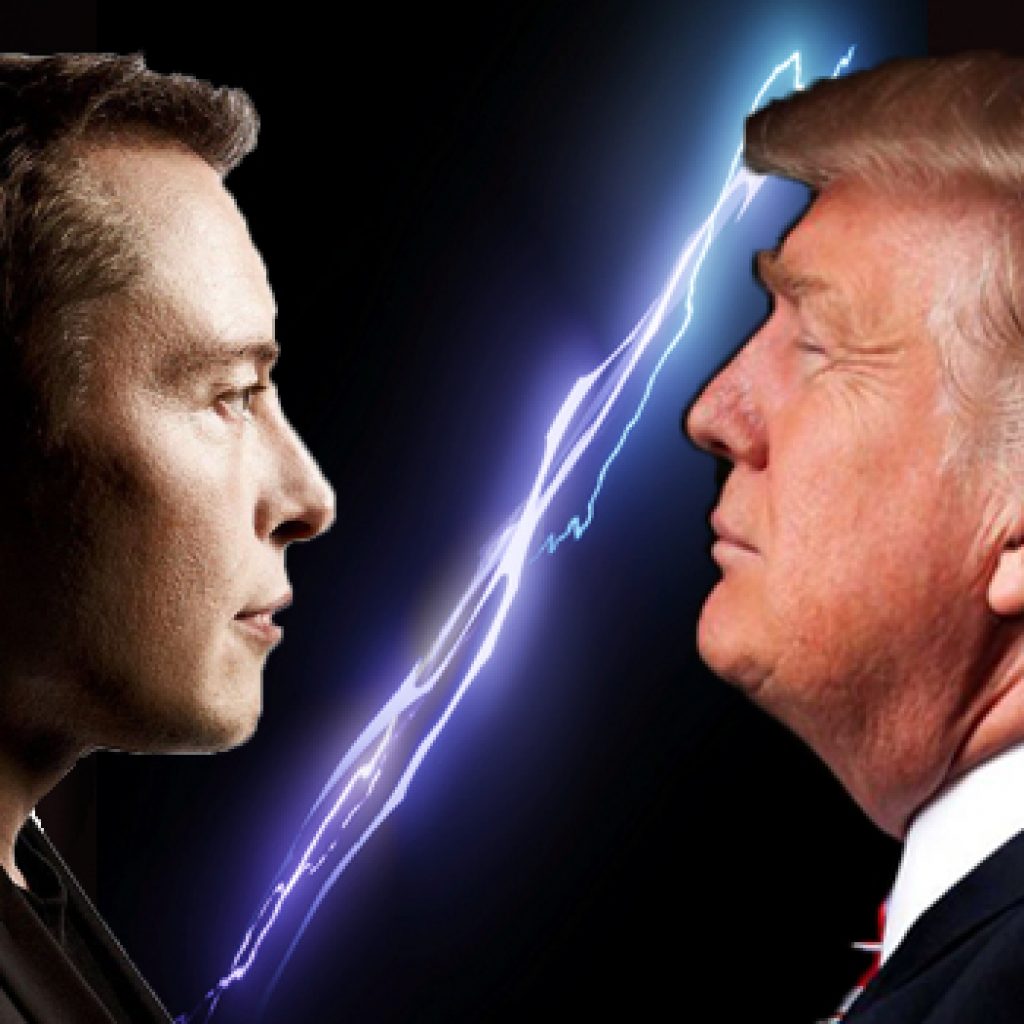
United States President, Donald Trump, and Tesla and SpaceX CEO, Elon Musk started a political debate on Twitter concerning the import tax difference between China and USA on cars. It all started off from a tweet of US President over his promised tariffs on foreign steel and aluminum. On Wednesday, 7 March, the White House resident tweeted that China were asked to find ways to cut the trade deficit between the two countries by a billion dollars. Truthfully, the request comes from America and the correct amount is $100 billion.
“China has been asked to develop a plan for the year of a One Billion Dollar reduction in their massive Trade Deficit with the United States. Our relationship with China has been a very good one, and we look forward to seeing what ideas they come back with. We must act soon!” Trump tweeted on March 7.
The following day, a tweet by Elon Musk popped up to the President, “Do you think the US & China should have equal & fair rules for cars? Meaning, same import duties, ownership constraints & other factors.”
Do you think the US & China should have equal & fair rules for cars? Meaning, same import duties, ownership constraints & other factors.
— Elon Musk (@elonmusk) March 8, 2018
The electric car manufacturer CEO then went on a twitter spree, stating that an American car exported to China pays a 25% import duty while the Chinese car coming to America pays only 2.5%. He also claims that automobile companies willing to operate in China must collaborate with a local company. He later on tweeted, “It’s like competing in an Olympic race wearing lead shoes.”
Indeed, while the process might seem like an Olympic race for the business tycoon, the rewards are colossal. China makes up the world’s largest car market making automakers ever more dependent on. This is why automakers from around the world are ready to go through that ‘Olympic race’ and submit themselves to all sorts of regulations, restrictions and complicated paper works imposed by the Chinese government.
Last year, General Motors sold over three million vehicles in the USA but sold four million in China. Indeed, the rate of sales growth is decreasing but it is still making mammoth figures, especially luxury brand sedans with the likes of Buicks and SUVS are extremely profitable in China. For example, Cadillac witnessed a 51 percent sales jump in 2017. But to sell in China, General Motors had to partner with local partners, a law that was designed to give the country’s auto industry a chance to compete against established rivals in the US, Europe, Japan and Korea. However, this law certainly isn’t Musk’s cup of tea.
Yet, we wonder what is the difference between an American or a Chinese car? Nowadays, auto manufacturers supply chains comes from all around the globe; some parts are manufactured in one country while the assembling takes place in another, while the company’s headquarters might be in a totally different place. For instance, Chinese company Geely superficially owns Swedish brand Volvo. They build the S90 sedan in China, even the upcoming Polestar 1 performance hybrid will be built there. Such competitors Elon Musk must have been complaining about when he tweeted, “there are five 100% China-owned EV auto companies in the US.”
Musk’s Telsa car company builds all-American cars, building of cars happen in California and batteries are manufactured in Nevada but even they rely on some spare parts imported from abroad. However, Musk’s discontent about the 25% import duty his company is bound to in China must certainly be because electric cars are on the demand in China and Musk wants his Tesla to receive its share in this fast-growing EV market.
There exists two ways to level the import duties imposed by China’s government. Firstly, to persuade China to drop its tariffs and restrictions. However, despite heavy import duty fees, American car fare better in China than Chinese cars fare in America. Volvo, for instance moves about 80,000 cars in the US annually and they are the best of the lot. American cars on the other hand, sell by millions annually. This ultimately puts the US with almost no negotiating power because American automakers rely more on the Chinese market than vice-versa.
Secondly, Trump could impose additional tariffs on imports of Chinese cars into the US, and hence level the import duties on paper at least. But this would be a dangerous move to do. Messing with global business ties means risking collateral damage. Limiting one import impacts another. Economists are already trying to work out how Trump’s steel and aluminium tariffs will impact American companies using steel.
Finally, import car duties might not be the priority of the US government at the moment as Trump’s government is actively trying to work out the steel and aluminum import tariffs and also have the North Korea situation to handle.
